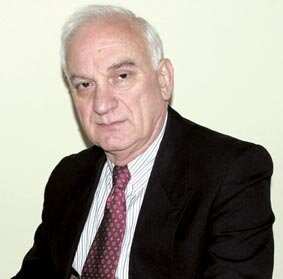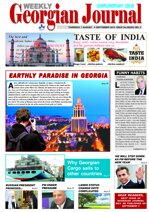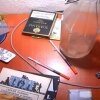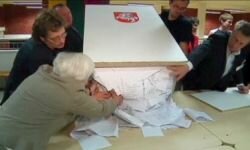Politicized Avenue
30 May, 2013
 We the Georgians love venting our political feelings in the street. A street-oriented political life is what makes us feel alive and kicking. Street has its unequaled charm and magic, and power too, used when political concerns and pains have to be gotten off our aching chests. As a matter of fact, we as a nation are politically more natural in the open air than indoors. We are suffocating inside an edifice even if its air is conditioned. We breathe better in the street – the political oxygen is better felt and taken in there. Streets make us feel more liberated where democracy seems healthier and more feasible. Streets are free from governmental duress, cultural conscience, social restrictions, economic plight, political inequity and intellectual responsibility.
We the Georgians love venting our political feelings in the street. A street-oriented political life is what makes us feel alive and kicking. Street has its unequaled charm and magic, and power too, used when political concerns and pains have to be gotten off our aching chests. As a matter of fact, we as a nation are politically more natural in the open air than indoors. We are suffocating inside an edifice even if its air is conditioned. We breathe better in the street – the political oxygen is better felt and taken in there. Streets make us feel more liberated where democracy seems healthier and more feasible. Streets are free from governmental duress, cultural conscience, social restrictions, economic plight, political inequity and intellectual responsibility.We feel politically more secure in the street for some funny reason. Street is the most favorable and most appreciated venue for open bickering between our political heavy-weights, trying to settle their ruffled accounts under open skies. Street is where our public and politicians have always liked to speak up real loud – not hearing each other though. Street in this country carries a meaning far beyond its conventional dictionary definition. Being street-wise has always been an asset for a politician here, exactly as it works in the life of young boys, spending most of their time in the street – if you survive street discords and disputes, you can always make it towards successful end. In the last quarter of a century, the streets of Tbilisi have many, many times seen people gathered in sizable crowds for various political reasons. The gravest issues of our political life have come to solution in the street. Street has been the most favorable environment to raise, discuss and solve the problems of national magnitude. The open-air politics has been in a very high demand in Georgia. The street-concentrated political endeavor could be OK as long as the problems find solution as a result. And that might sound OK! My only funny concern would be that all those street events have always been taking place in the Rustaveli Avenue. When the Rustaveli is closed for hours on end, the entire city is paralyzed, and millions of man-hours are wasted, not to mention the increased consumption of gas and the contaminated air from the jammed traffic all over the place. At moments like that, tens of stuck-in-the-traffic edgy and upset drivers are ready to tear apart their tormentors, whoever they might be. Why couldn’t those demonstrations and parades, including the gay ones, take place somewhere else? I thought before that it happened because the parliament building was located in the area. The political epicenter of Georgia has now been moved 250 kilometers away – somewhere in Kutaisi, West Georgia. Why can’t all those parade addicts go there to flaunt their banners and slogans in front of our political authorities? Why moving of the country’s parliament should be more affordable than replacing the venue of parades? Comrades, let us ban demonstrations in the main thoroughfare of our capital city of narrow and uncomfortable streets! Let us have those political get-togethers in the fields and stadiums, in the outskirts and suburbs, in smaller cities, towns and boroughs. In the epoch of TV and Internet the info can momentarily fly unhampered from spot to spot, so let us kill this annoying fashion of manifesting our political dreams only in the Rustaveli Prospect, which is meant for happy walks and promenades rather than those hysterical political rallies, of which the nation is getting tired. I understand that the habit might be a second nature, meaning that a politically charged crowd will persist on using the central street of Tbilisi for purposes well-known, but let us still try to leave alone the beautiful and smiling Rustaveli, giving a chance to other places to become just as useful and famous.








































